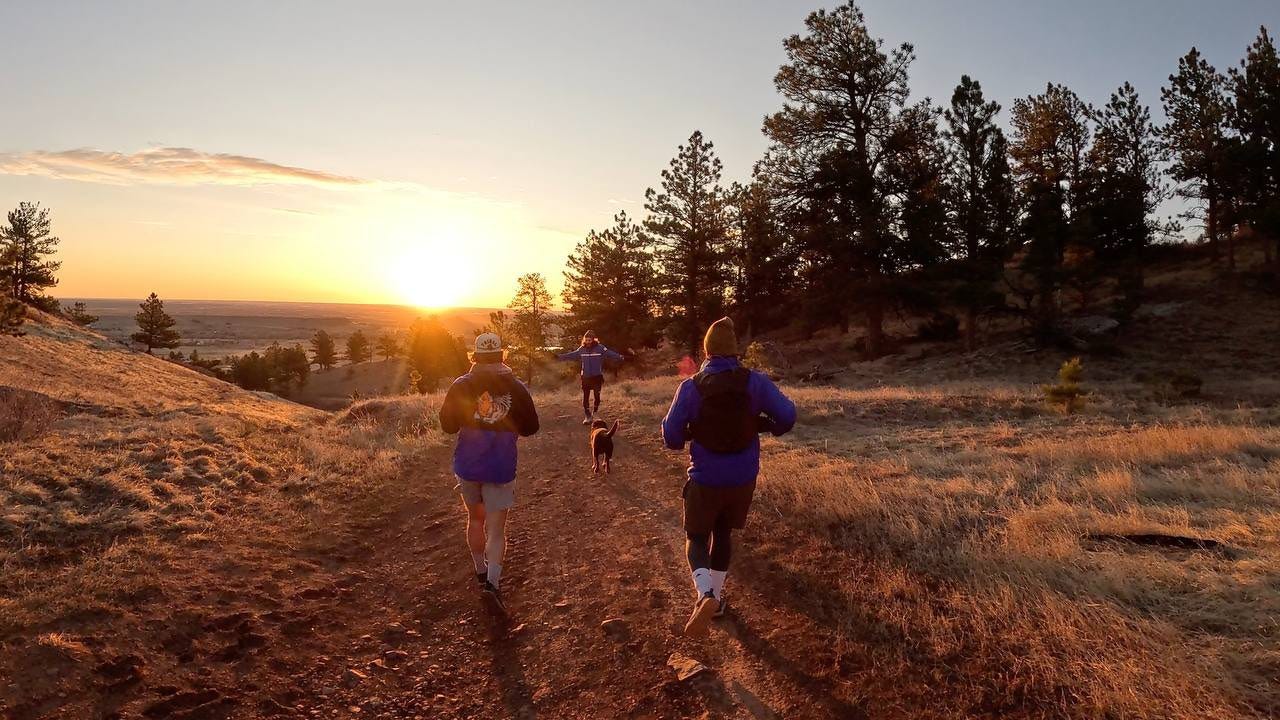The wise philosopher Aristotle identified courage as the prime virtue, the one that all others effectively flowed from.
I’m not here to argue with Aristotle, but I want to put up another virtue that might be supporting courage, maybe a scaffold underneath it: Patience
It’s a word I hear over and over as a coach who helps athletes and individual mine athletic experiences for deep transferrable life lessons.
“I need more patience in life, not reacting so quickly with emotion.”
“I keep falling into the same mindset trap, I’d love more patience to help get me out if it”
“It’s hard to commit to a big change if I can’t find the patience to take on the small things”
Patience is a key virtue, and it’s one you can absolutely train into yourself through athletic training.
How to ‘train in patience’
One reason athletics, physical training, and sports offer us a chance to acquire deep virtues is the truth of our experiences.
There just isn’t room for lying in our world. Cheaters are found out and ruthlessly punished. No one gets to skip steps and achieve. Everyone does the work. And the results speak for themselves.
Courage is an easy virtue to see plated out in sports. You have ‘fear’ of how much an effort will hurt but you resolve yourself to start and finish. Take a threshold 5K test for example. You know it’s going to hurt but you want to measure yourself against your potential best, so you grin, bear it, and struggle through the run.
Overcoming that initial fear helps you become more courageous next time you have to take on a hard workout. You’ve done it before. It’s embodied into your experience through the truth of your effort.
Now take patience. How do you train patience into yourself through sport?
Just like in that courage example, think of what patience requires.
Patience requires perservance. So what does perserverance require?
These descriptions from my “Roget’s Thesaurus” help get us the clear picture. Perserverance requires a singularity of purpose, combined with tenacity, and a steadiness to see the task through. The key word here is ENDURANCE.
When thinking about how to train patience through physical training, the answer is clear. Throw yourself into endurance sports.
Why Endurance Sports and Patience?
Endurance relies on two things that help make it the perfect place to train patience.
1.Singularity of Purpose
Endurance sports are simple. Run this far, swim from here to there, bike over that mountain and back.
You’re doing one thing, and only one thing. Sure there are lots of details in how you can do each thing, but it’s unlike other workout methods that rely on you switching up movements.
No 3x5 on a number of different machines. No quick hits under 20 minutes.
2.Time
Endurance takes TIME. There’s no way around it. Even when you think of it in distance, all the distances require time.
Want to run a 1/2 marathon? Be prepared to run straight for anywhere between 90-150 minutes straight.
You cant’ force the hand on the clock to move faster toward the end. You just have to figure out how to make it through.
These two factors make training patience a real possibility. You have to do one thing, for a really long time, and it’s not going to be easy.
Takeaways into real life
This came full circle in a 2-1 coaching calls with myself, Tribal Training head coach
, and an athlete we guide together.He’s been training endurance for over 1 year and we were looking back on his training and mindset progress. It became clear that he was finding patience and acceptance with the whole idea of endurance training.
Coming from a weightlifting background, he’s the type to latch onto to the ‘need to know’ process of progressive overload.
“If I lift this weight in this pattern this week, I’ll get to life more weight in that pattern next week”
There’s a certainty and clear expectation. Endruance training is NOT LIKE THIS.
It’s much more about buying into a long term process where results often take months or sometimes years to truly show up. It’s an exercise in patience.
This athlete wasn’t as consistent as they’d like to be in their first year, but now that they have experience in the game, they are finding more peace in letting go of the ‘need to know’ and finding more enjoyment in the day to day training.
He’s found patience. But it’s not just in the training.
He’s seeing that slowing down, pacing the effort, releasing the need to know the objective result, and finding enjoyment in the journey is having big time affects on his life outside of training.
He’s been able to make the right decisions about buying a home, taking on a promotion, and gearing up for marriage, without immediately reacting on the strong emotions attached to each decision.
It’s just like his training; when he would get frustrated about a 1 hour run and quit the workout he lacked the patience to stick it out through initial adversity. Now he understands that slowing down helps take him farther and if he feel bad during the first part of a training session, he can recover and feel better by the end. He’s learning to sit in his immediate reactions and find the space to act apporpriately towards his overall goals.
Sounds like patience to ME!
So if you’re someone who desperately craves a little more patience to deal with the seemingly never ending cascade of responsibilities, I think you should give endurance sports a try.
I've gained the patience to deal with my kids raw emotions from running long distances in the forests
It's kind of silly to yell slurs at the trail when I feel I want to quit
Same way it's weak for me to yell at my kids when I'm angry they aren't acting like adults.
So go for a long run, a bike ride for distance, or a swim that melts minutes away through the waves and tune your mind into how it’s helping you overcome immediate reactions and hone in on the patient signal your embodying through the effort.
Happy Training Team!







Nice piece! I think there's a flip-side to this coin though: when "patience" strays into ambivalence. It can be a little too easy, for us dudes especially, to turn off emotion, you know? If we practice denying our feelings, it may become harder for us to access them when we need them. As a weightlifter, I need to be able to ignite that spark of emotion, of something being "on the line," to get to that passion required to hit big numbers in the snatch and clean & jerk. In life outside of sports, being in touch with our emotions can be a powerful tool when we need to make a convincing pitch, to be able to sell an idea when important decisions are being made. Just something I thought about while reading!